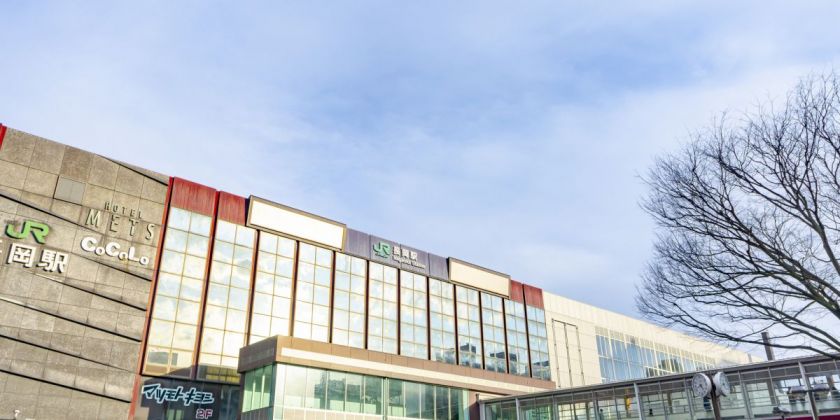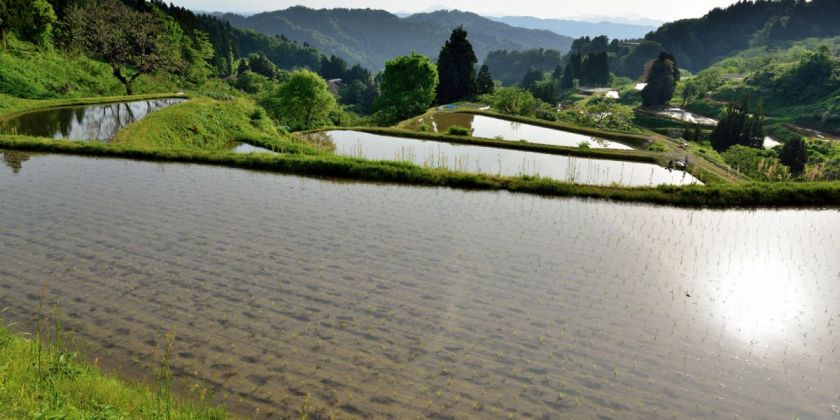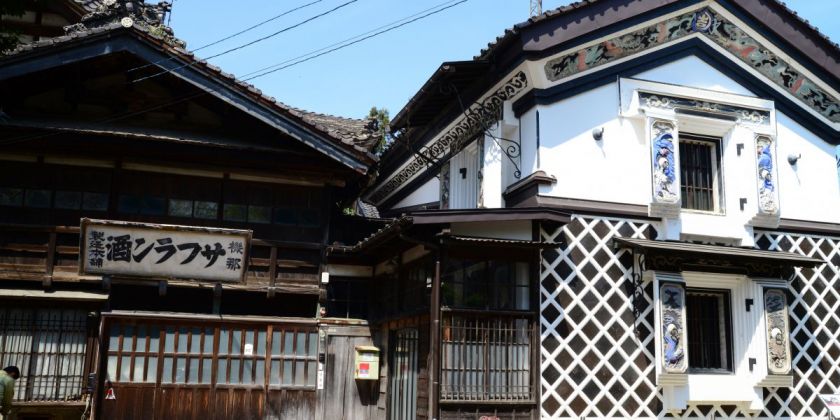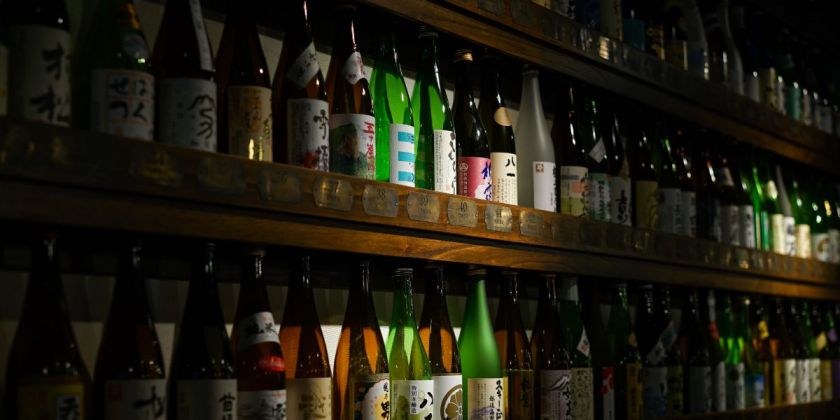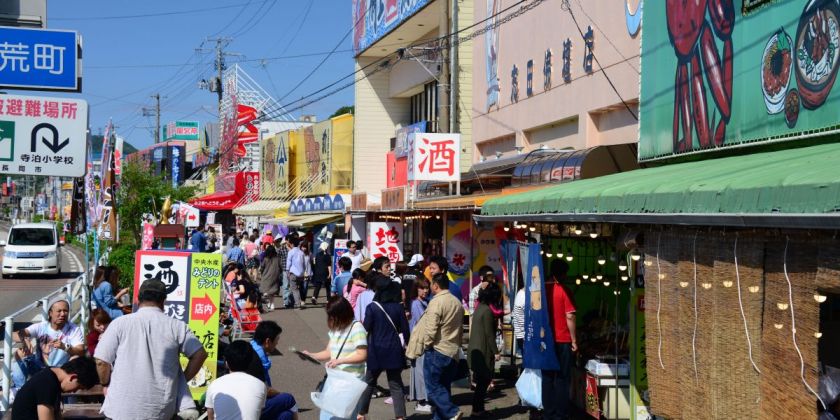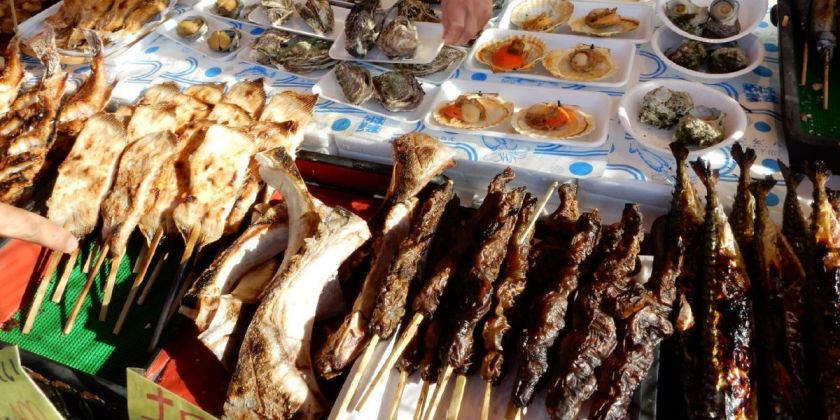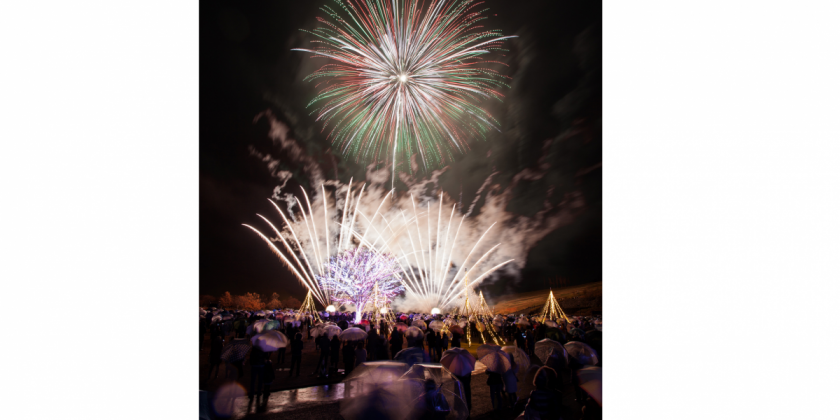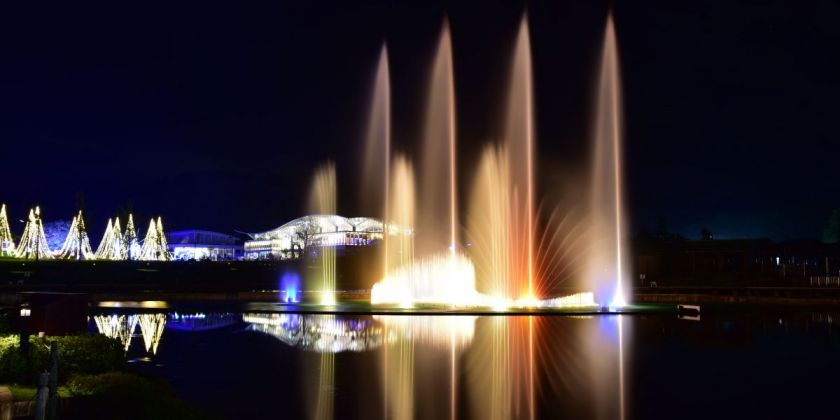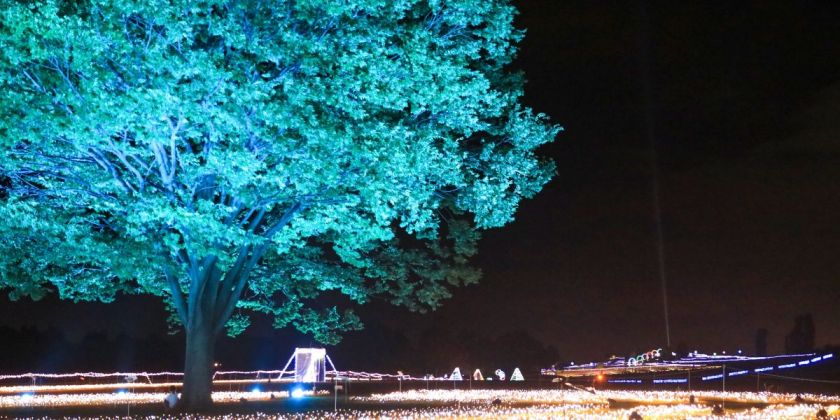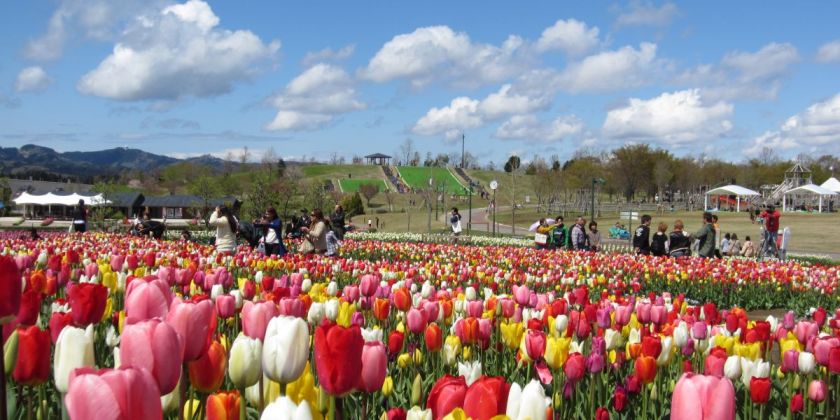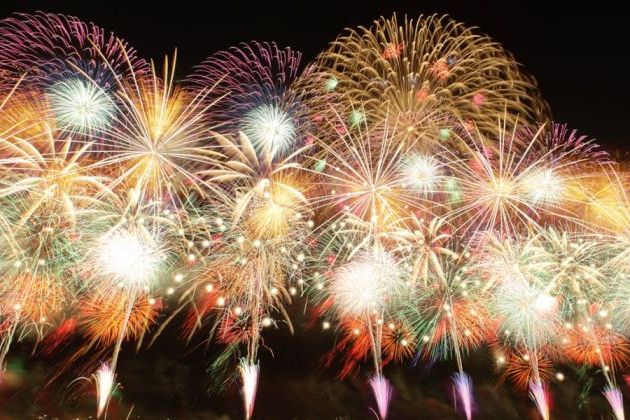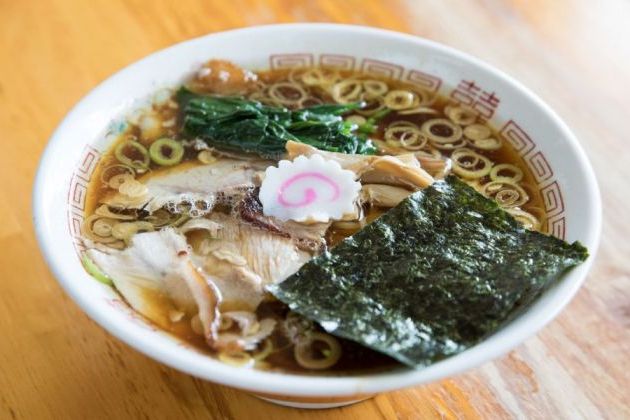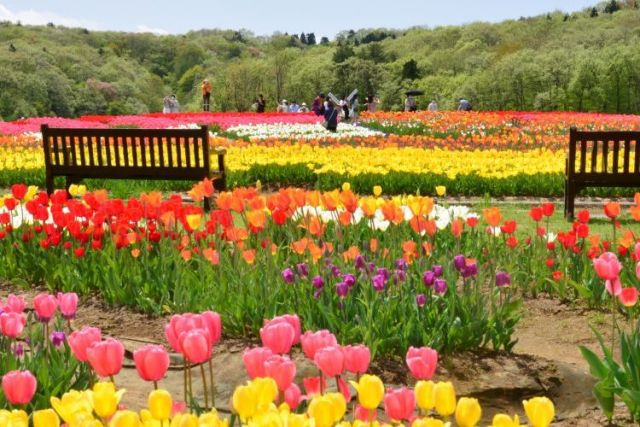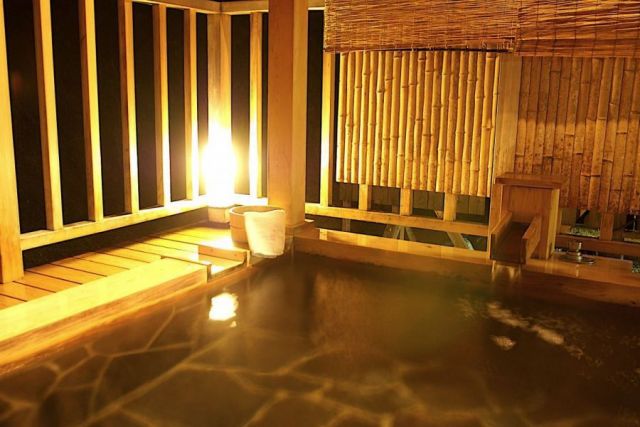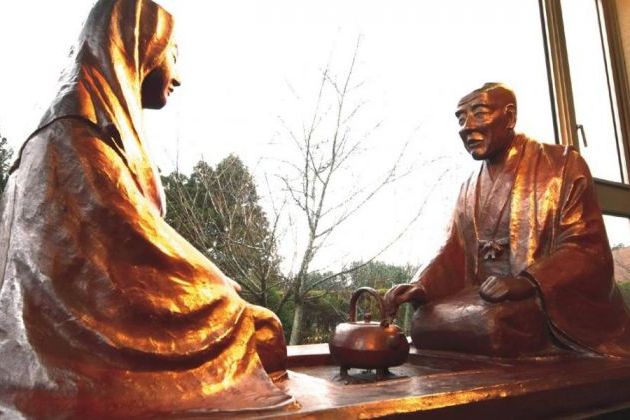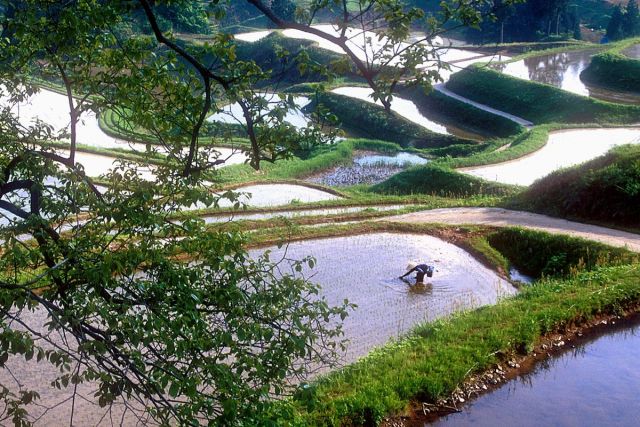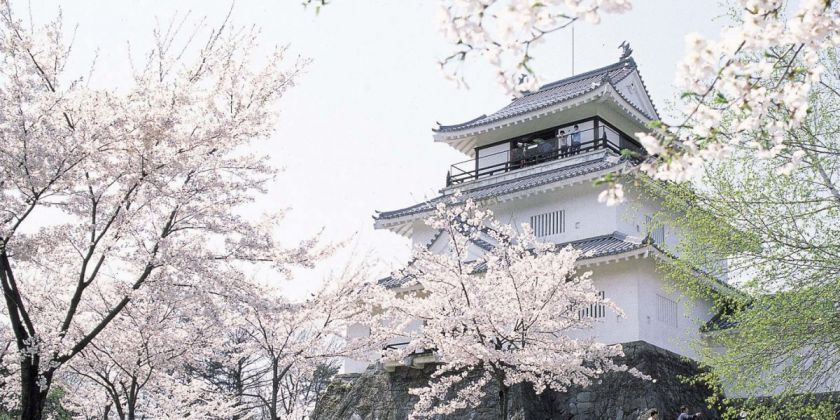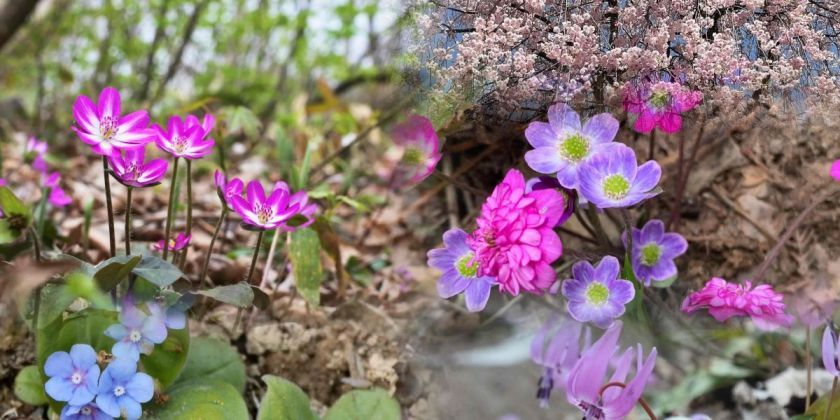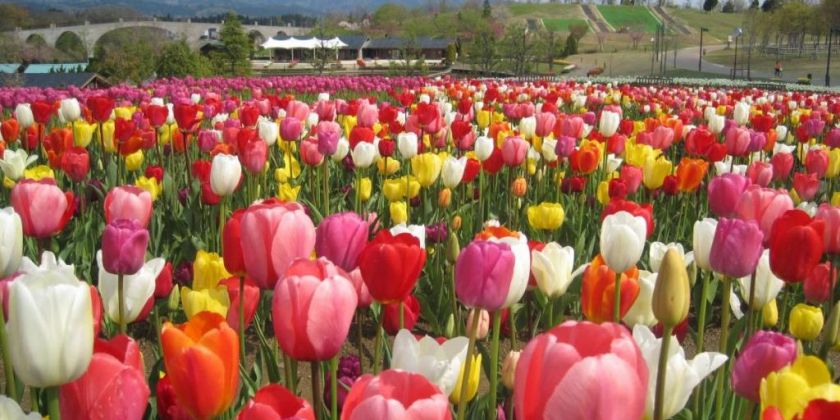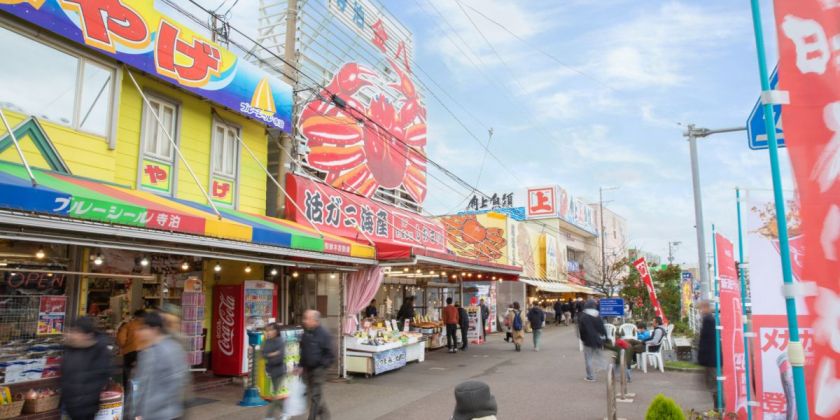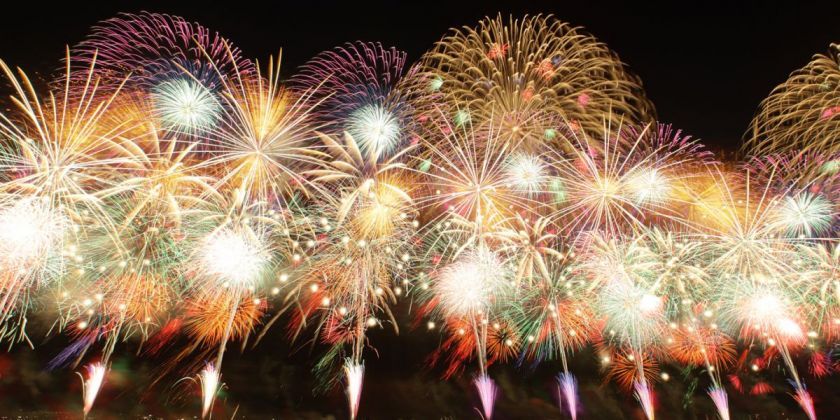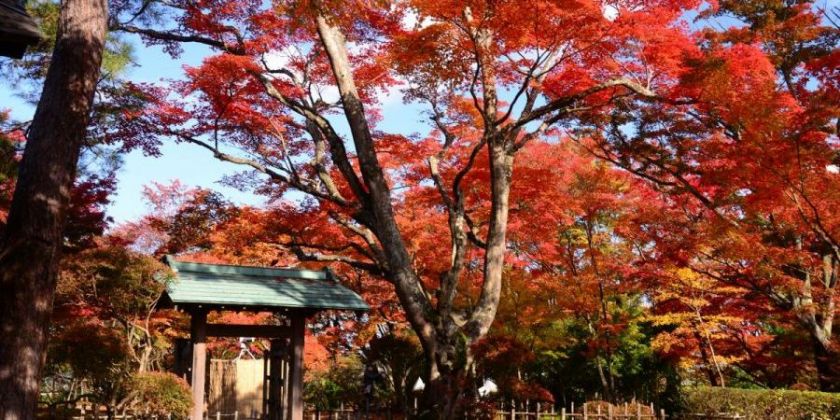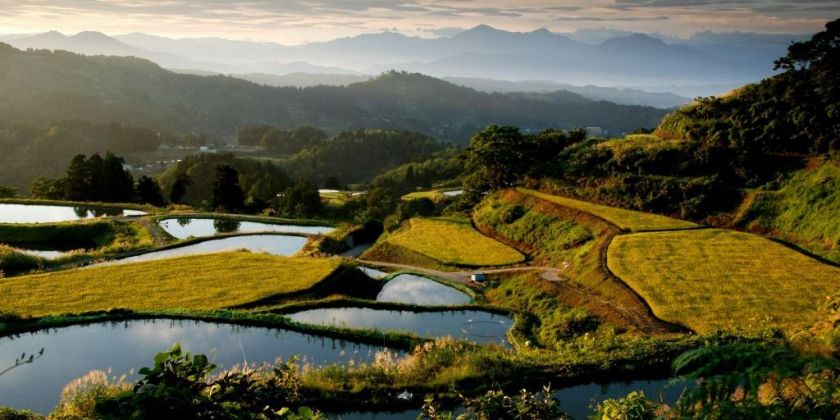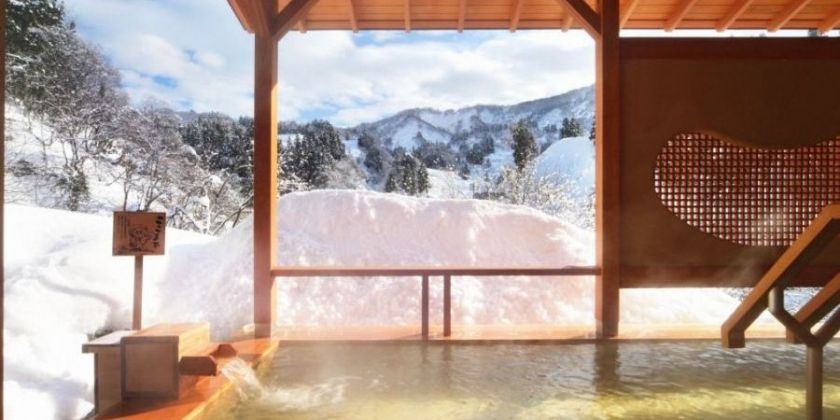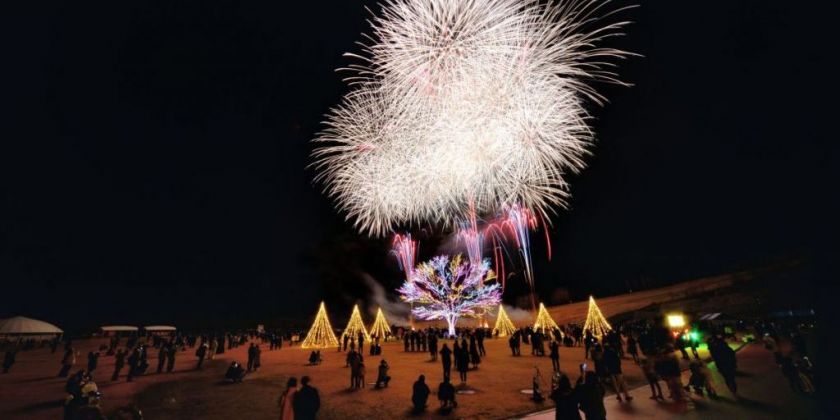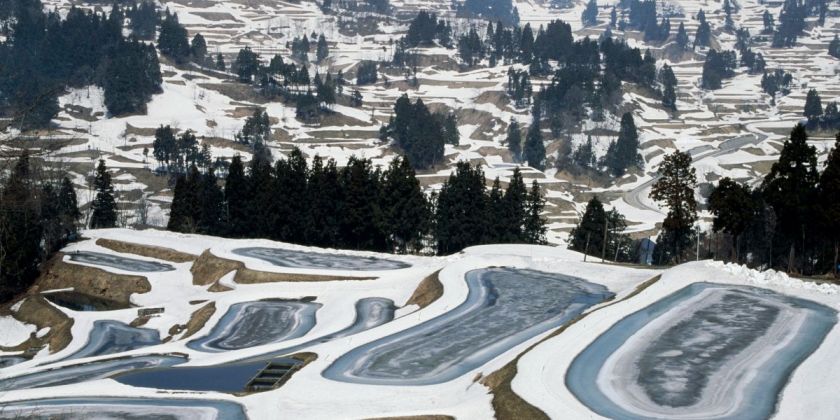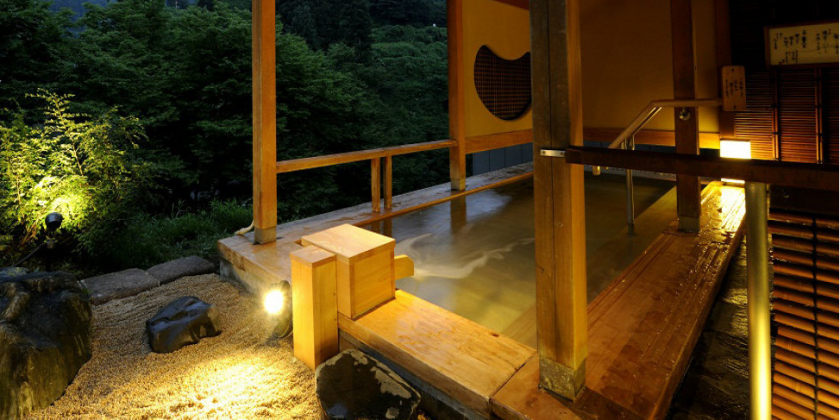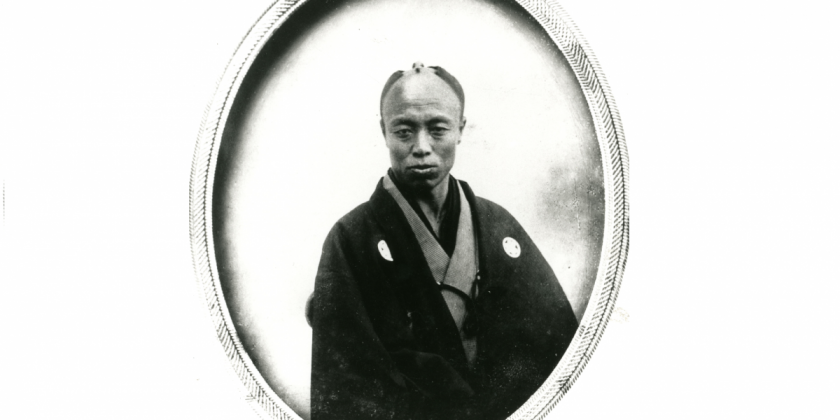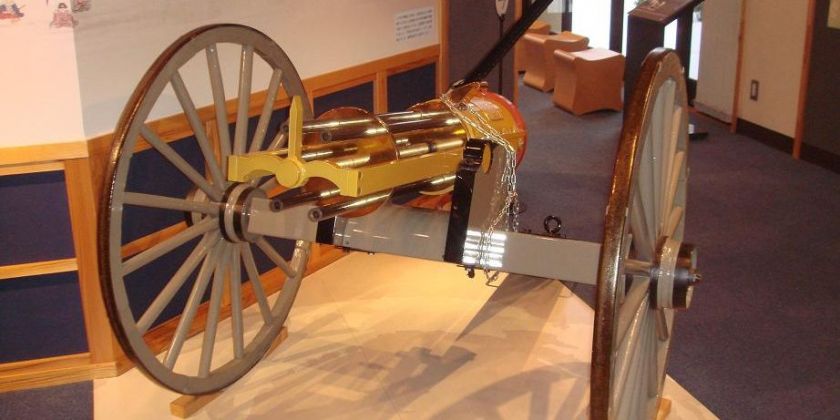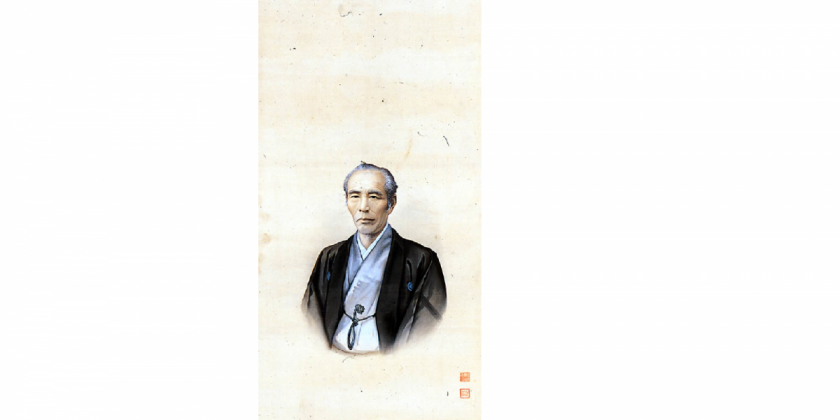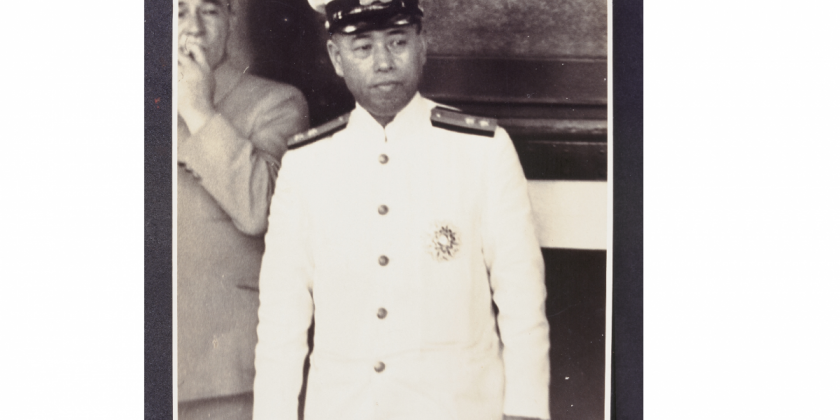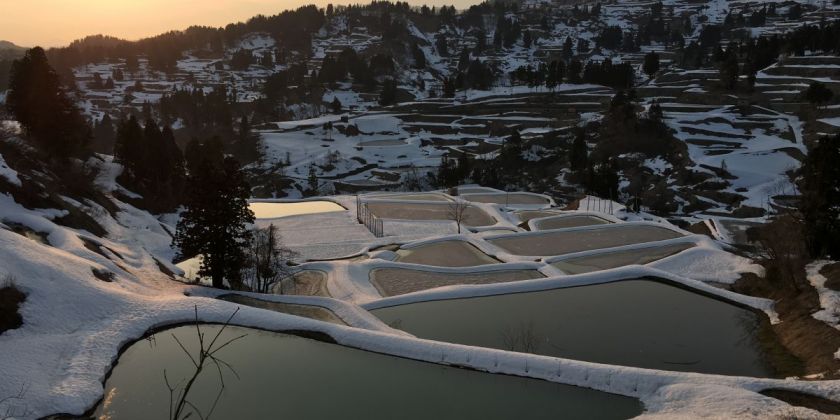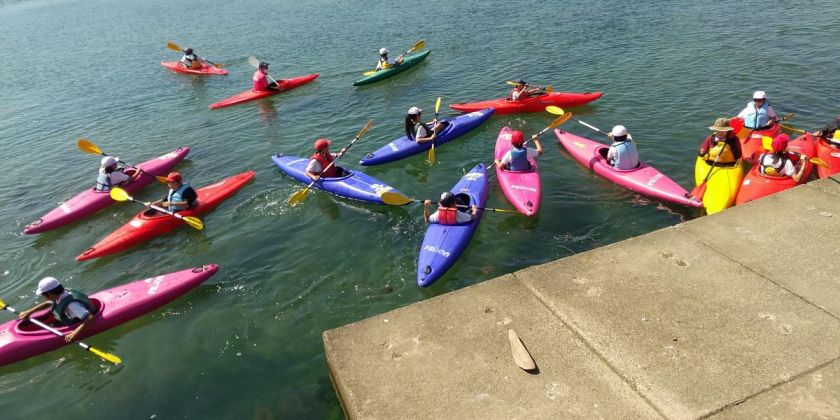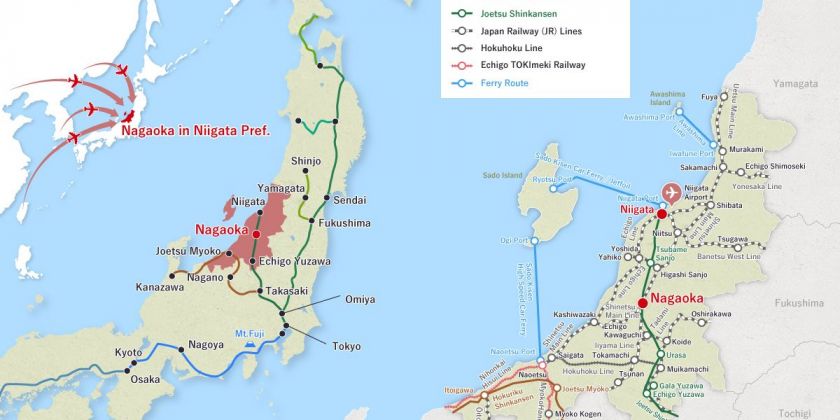
About Nagaoka
Nagaoka City which is located in the central part of Niigata Prefecture has the second largest population in the prefecture.
Tourist attractions and local gourmet foods are listed.
Please take a look when you come to Nagaoka.
【Reference】 English translated version of the original site
What’s Nagaoka?
It takes one and a half hours from Tokyo by Shinkansen.
Nagaoka is famous for producing rice.
Japanese sake is made by using rice and clean water flowing from the mountains. Because Nagaoka faces the sea, fresh seafood is landed.
If you come to Nagaoka, please visit Teradomari Fish Market Street.
Also,there are 16 sake breweries in Nagaoka, the largest number in Niigata Prefecture.
At Echigo Hillside Park, beautiful flowers such as tulips and roses bloom every season.
You can enjoy every season, such as summer illuminations and winter fireworks.
Nagaoka is famous for producing rice.
Japanese sake is made by using rice and clean water flowing from the mountains. Because Nagaoka faces the sea, fresh seafood is landed.
If you come to Nagaoka, please visit Teradomari Fish Market Street.
Also,there are 16 sake breweries in Nagaoka, the largest number in Niigata Prefecture.
At Echigo Hillside Park, beautiful flowers such as tulips and roses bloom every season.
You can enjoy every season, such as summer illuminations and winter fireworks.
Nagaoka City Promotion Video
Nagaoka city council made YouTube video to introduce sightseeing spots and restaurants in Nagaoka.
Please enjoy the video!!
Please enjoy the video!!
Various tourist destinations
We will introduce various tourist spots.
-
Festival
Every year on August 2nd and 3rd, "Nagaoka Fireworks Festival" is held.
-
Foods & Sake
There are some Nagaoka City original gourmet foods, so you can never hesitate about what to eat.
-
Parks & Gardens
Nagaoka City has parks and gardens where you can enjoy the four seasons. Please come by all means!
-
Accommodations & Hot springs
-
Museums & Temples
There are many museums and temples in the city.
-
Yamakoshi area
Yamakoshi area where you can enjoy nostalgic Japanese scenery.
Beautiful photo collection for each season
The spring in Nagaoka brings forth a variety of plants celebration the long-awaited spring thaw.
Yukiwari grass begins to bloom in early March, and tulips at Echigo Hillside National Park are at their peak from mid-April to early May.
The fleeting summer of Nagaoka is packed with enjoyable moments at the beaches,mountains,and fireworks shows.
Tourists from inside and outside the prefecture gather for events such as the Teradomari Fish Market Street and the Nagaoka Fireworks Festival, which are lively.
In Autumn, the harvest season, maple leaves turn crimson as if they were celebrating bumper crops.
In the terraced rice fields of the Yamakoshi region, which is the original scenery of a Japanese village, the rice ears shine golden and the harvest season begins in September. At the maple garden, the autumn leaves are in full bloom from late October to late November, creating a peaceful and peaceful Japanese-style space.
Winter brings a blanket of snow and praises the beauty of the crisp air and magical landscapes.
The snowy scenery of Homodaira Onsen, which is located at the base of Takaryu Shrine, which is known for the dragon god of business prosperity, is also very picturesque.
Yukiwari grass begins to bloom in early March, and tulips at Echigo Hillside National Park are at their peak from mid-April to early May.
The fleeting summer of Nagaoka is packed with enjoyable moments at the beaches,mountains,and fireworks shows.
Tourists from inside and outside the prefecture gather for events such as the Teradomari Fish Market Street and the Nagaoka Fireworks Festival, which are lively.
In Autumn, the harvest season, maple leaves turn crimson as if they were celebrating bumper crops.
In the terraced rice fields of the Yamakoshi region, which is the original scenery of a Japanese village, the rice ears shine golden and the harvest season begins in September. At the maple garden, the autumn leaves are in full bloom from late October to late November, creating a peaceful and peaceful Japanese-style space.
Winter brings a blanket of snow and praises the beauty of the crisp air and magical landscapes.
The snowy scenery of Homodaira Onsen, which is located at the base of Takaryu Shrine, which is known for the dragon god of business prosperity, is also very picturesque.
Accommodations & Hot springs
There are business hotels, inns, hostels in Nagaoka City.
From private trips with family and friends to staying with a large number of people such as work and educational trips, we will meet various needs.
Please click the button below to download the related materials and call the facility you care about.
From private trips with family and friends to staying with a large number of people such as work and educational trips, we will meet various needs.
Please click the button below to download the related materials and call the facility you care about.
History
Since 400 years ago, in Nagaoka, hard-working and leaders have been produced.
Tsuginosuke Kawai, who was called "Last Samurai", had excellent insight.
Applying the tactics of the revolutionary Napoleon, who is said to be a genius of battle, he has won many victories.
At that time he acquired two of the latest weapons, the Gatling gun, which was said to have only three in Japan.
Nagaoka clan had only 5,000 against 20,000 new government troops, but bravely confronted them. This is called Hokuetsu Boshin War.
In the devastated land of Nagaoka after the war, Kawai's childhood friend, Okujiro Mishima, struggled.
In addition, thanks to Torasaburo Kobayashi, who built a school for 100 hundred sacks of rice(*) and put the education first, the number of talented people continued to increase.
The spirit of 100 hundred sacks of rice, which strives to endure the pain of not being able to eat satisfactorily and to improve the future, continues to this day.
Isoroku Yamamoto were sent to diplomacy during World War II.
He prayed for world peace, and with the language skills he had studied at Harvard University in the United States, he gave a direct opinion to the United States and the United Kingdom.
Tsuginosuke Kawai, who was called "Last Samurai", had excellent insight.
Applying the tactics of the revolutionary Napoleon, who is said to be a genius of battle, he has won many victories.
At that time he acquired two of the latest weapons, the Gatling gun, which was said to have only three in Japan.
Nagaoka clan had only 5,000 against 20,000 new government troops, but bravely confronted them. This is called Hokuetsu Boshin War.
In the devastated land of Nagaoka after the war, Kawai's childhood friend, Okujiro Mishima, struggled.
In addition, thanks to Torasaburo Kobayashi, who built a school for 100 hundred sacks of rice(*) and put the education first, the number of talented people continued to increase.
The spirit of 100 hundred sacks of rice, which strives to endure the pain of not being able to eat satisfactorily and to improve the future, continues to this day.
Isoroku Yamamoto were sent to diplomacy during World War II.
He prayed for world peace, and with the language skills he had studied at Harvard University in the United States, he gave a direct opinion to the United States and the United Kingdom.
Japanese Nationally Important Agricultural Heritage Systems —Rice and Carp Cultivation System Using Meltwater—
The Nagaoka-Ojiya “Birthplace of Nishikigoi” Revitalization Promotion Council, which is made up of citizens’ groups from both cities, JA (Japan Agricultural Cooperatives), and various organizations dealing with nishikigoi (multi-colored ornamental carp), sent in a petition to have their Rice and Carp Cultivation System Using Meltwater recognized as a Japanese Nationally Important Agricultural Heritage System. The Ministry of Agriculture, Forestry and Fisheries certified the council’s request in the 2016 fiscal year.
This certification signifies that this community’s agricultural system, handed down continuously through the generations, of using terraced rice paddies and terraced ponds to cultivate rice and nishikigoi has been recognized to be representative of Japanese culture. This certification also has a deep connection with the citizens’ pride and the development of regional brands.
This certification signifies that this community’s agricultural system, handed down continuously through the generations, of using terraced rice paddies and terraced ponds to cultivate rice and nishikigoi has been recognized to be representative of Japanese culture. This certification also has a deep connection with the citizens’ pride and the development of regional brands.
English travel document
experiences in Nagaoka
Staff's Reccomendations from our FB
We'd like to introduce good sightseeing spots for foreigners with our Facebook Page.
<Hotokusan Inari Taisya>
<Teradomari Fish Market Street>
<Echigo Hillside Park>
<Momijien>
<Teradomari Fish Market Street>
<Echigo Hillside Park>
<Momijien>
SNS
Check it out!
We write some post about Nagaoka tourism Information on our Facebook and Instagram.
We write some post about Nagaoka tourism Information on our Facebook and Instagram.
-
Facebook
-
Instagram
Transportation
<Joetsu Shinkansen>
Nagaoka is easily accessible from Tokyo.
It takes one hour and 40 minutes.
From Osaka:5 hours and 30 minutes
From Kanazawa:3 hours and 40 minutes
From Nagoya:3 hours and 30 minutes
From Sendai:2 hours and 25 minutes
From Nagano:2 hours and 10 minutes
From Takasaki:55 minutes
Echigo Yuzawa:25 minutes (one hour and 20 minutes by Train)
From Niigata:25 minutes (one hour and 20 minutes by Train)
Nagaoka is easily accessible from Tokyo.
It takes one hour and 40 minutes.
From Osaka:5 hours and 30 minutes
From Kanazawa:3 hours and 40 minutes
From Nagoya:3 hours and 30 minutes
From Sendai:2 hours and 25 minutes
From Nagano:2 hours and 10 minutes
From Takasaki:55 minutes
Echigo Yuzawa:25 minutes (one hour and 20 minutes by Train)
From Niigata:25 minutes (one hour and 20 minutes by Train)
Address
<Nagaoka Incorporated Association of Tourism and Conventions>
Nagaoka Civic Center(2F) 2-2-6 Otedori,Nagaoka,Niigata 940-0062
Email:info@nagaoka-navi.or.jp
<Nagaoka Tourist Information Center>
2-794-4 Zyonaicho,Nagaoka,Niigata 940-0061
E-mail:eki@nagaoka-navi.or.jp
Nagaoka Civic Center(2F) 2-2-6 Otedori,Nagaoka,Niigata 940-0062
Email:info@nagaoka-navi.or.jp
<Nagaoka Tourist Information Center>
2-794-4 Zyonaicho,Nagaoka,Niigata 940-0061
E-mail:eki@nagaoka-navi.or.jp

